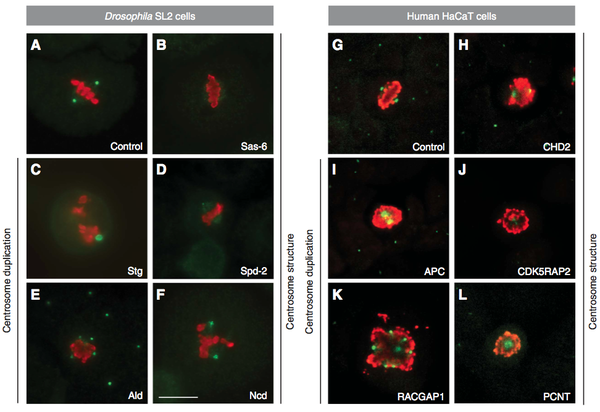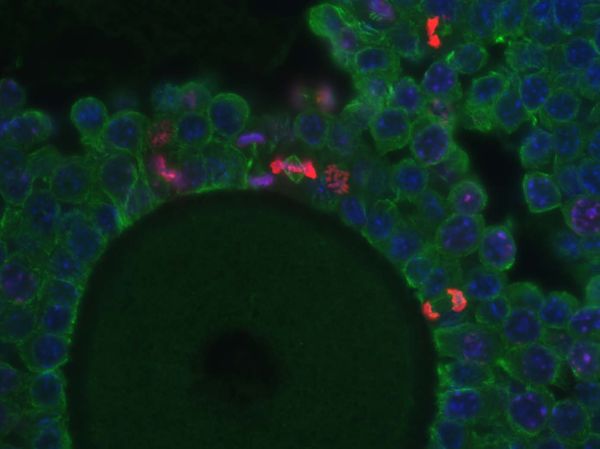Former Associated Research Group - Ploubidou (until 2022)
Last Projects
Mechanisms and consequences of centrosome inactivation
Centrosome activity is primarily regulated by changes in composition and quantity of the pericentriolar material (PCM), which nucleates microtubules. Centrosome inactivation, mediated by ablation of PCM, occurs during differentiation or upon viral infection, and results in functional modifications of microtubule nucleation and organization. We are using human viruses, which efficiently perturb centrosome structure, to identify PCM regulators and to assay their contribution to cytoskeletal remodeling, cancer related signaling and neoplastic growth. Employing human papillomavirus oncoproteins as oncogenic stimulus we are addressing the long-standing key question whether centrosome inactivation is oncogenic in human cells.
Mitotic functions of RHAMM
RHAMM is a multifunctional protein, which is deregulated in human cancers. Centrosome- and spindle-associated RHAMM orients the mitotic spindle determining the axis of cell division. This function is important for oogenesis and female fertility. We are using functional genomic approaches to identify RHAMM regulators and evaluate their contribution in polarized cell division and tissue homeostasis.
Contact

Aspasia Ploubidou
Former Associated Group Leader










